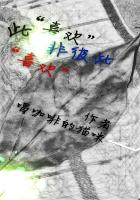A cadet of Pfalz-Zweibruck (DEUX-PONTS, as the French call it), direct from Rupert, went to serve in Sweden in his soldier business; distinguished himself in soldiering;--had a Sister of the great Gustav Adolf to wife; and from her a renowned Son, Karl Gustav (Christina's Cousin), who succeeded as King; who again had a Grandson made in his own likeness, only still more of iron in his composition.--Enough now of Rupert SMITH'S-VICE; who died in 1410, and left the Reich again vacant.
Rupert's funeral is hardly done, when, over in Preussen, far off in the Memel region, place called Tannenberg, where there is still "a churchyard to be seen," if little more, the Teutsch Ritters had, unexpectedly, a terrible Defeat: consummation of their Polish Miscellaneous quarrels of long standing; and the end of their high courses in this world. A ruined Teutsch Ritterdom, as good as ruined, ever henceforth. Kaiser Rupert died 18th May; and on the 15th July, within two months, was fought that dreadful "Battle of Tannenberg,"--Poland and Polish King, with miscellany of savage Tartars and revolted Prussians, VERSUS Teutsch Ritterdom; all in a very high mood of mutual rage; the very elements, "wild thunder, tempest and rain-deluges," playing chorus to them on the occasion.
[Voigt, vii. 82. Busching, <italic> Erdbeschreibung <end italic>
(Hamburg, 1770), ii. 1038.] Ritterdom fought lion-like, but with insufficient strategic and other wisdom; and was driven nearly distracted to see its pride tripped into the ditch by such a set.
Vacant Reich could not in the least attend to it; nor can we farther at present.
SIGISMUND, WITH A STRUGGLE, BECOMES KAISER.
Jobst and Sigismund were competitors for the Kaisership;Wenzel, too, striking in with claims for reinstatement: the House of Luxemburg divided against itself. Wenzel, finding reinstatement not to be thought of, threw his weight, such as it was, into the scale of Cousin Jobst; remembering angrily how Brother Sigismund voted in the Deposition case, ten years ago. The contest was vehement, and like to be lengthy. Jobst, though he had made over his pawn-ticket, claimed to be Elector of Brandenburg; and voted for Himself. The like, with still more emphasis, did Sigismund, or Burggraf Friedrich acting for him: "Sigismund, sure, is Kur-Brandenburg though under pawn!" argued Friedrich,--and, I almost guess, though that is not said, produced from his own purse, at some stage of the business, the actual money for Jobst, to close his Brandenburg pretension.
Both were elected (majority contested in this manner); and old Jobst, then above seventy, was like to have given much trouble:
but happily in three months he died; ["Jodocus BARBATUS," 21st July, 1411.] and Sigismund became indisputable. Jobst was the son of Maultasche's Nullity; him too, in an involuntary sort, she was the cause of. In his day Jobst made much noise in the world, but did little or no good in it. "He was thought a great man," says one satirical old Chronicler; "and there was nothing great about him but the beard.""The cause of Sigismund's success with the Electors," says Kohler, "or of his having any party among them, was the faithful and unwearied diligence which had been used for him by the above-named Burggraf Friedrich VI. of Nurnberg, who took extreme pains to forward Sigismund to the Empire; pleading that Sigismund and Wenzel would be sure to agree well henceforth, and that Sigismund, having already such extensive territories (Hungary, Brandenburg and so forth) by inheritance, would not be so exact about the REICHS-Tolls and other Imperial Incomes. This same Friedrich also, when the Election fell out doubtful, was Sigismund's best support in Germany, nay almost his right-hand, through whom he did whatever was done." [Kohler, p. 337.]
Sigismund is Kaiser, then, in spite of Wenzel. King of Hungary, after unheard-of troubles and adventures, ending some years ago in a kind of peace and conquest, he has long been King of Bohemia, too, he at last became; having survived Wenzel, who was childless.
Kaiser of the Holy Roman Empire, and so much else: is not Sigismund now a great man? Truly the loom he weaves upon, in this world, is very large. But the weaver was of headlong, high-pacing, flimsy nature; and both warp and woof were gone dreadfully entangled!--This is the Kaiser Sigismund who held the Council of Constance; and "blushed visibly," when Huss, about to die, alluded to the Letter of Safe-conduct granted him, which was issuing in such fashion. [15th June, 1415.] Sigismund blushed; but could not conveniently mend the matter,--so many matters pressing on him just now. As they perpetually did, and had done.
An always-hoping, never-resting, unsuccessful, vain and empty Kaiser. Specious, speculative; given to eloquence, diplomacy, and the windy instead of the solid arts;--always short of money for one thing. He roamed about, and talked eloquently;--aiming high, and generally missing:--how he went to conquer Hungary, and had to float down the Donau instead, with an attendant or two, in a most private manner, and take refuge with the Grand Turk: this we have seen, and this is a general emblem of him. Hungary and even the Reich have at length become his;but have brought small triumph in any kind; and instead of ready money, debt on debt. His Majesty has no money, and his Majesty's occasions need it more and more.
He is now (A.D. 1414) holding this Council of Constance, by way of healing the Church, which is sick of Three simultaneous Popes and of much else. He finds the problem difficult; finds he will have to run into Spain, to persuade a refractory Pope there, if eloquence can (as it cannot): all which requires money, money.
At opening of the Council, he "officiated as deacon;" actually did some kind of litanying "with a surplice over him," [25th December, 1414 (Kohler, p. 340).] though Kaiser and King of the Romans.















